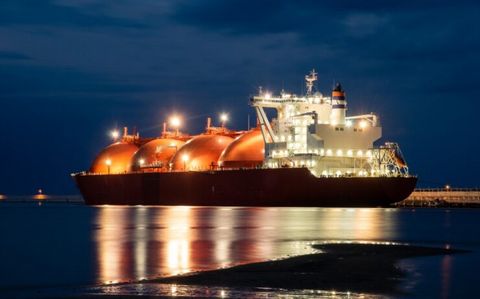Communication - Presse
TotalEnergies’ Return to Mozambique Could Boost Prices to 8.8% By Year-End

Oxford Economics said this week that inflation in Mozambique, after falling to March 2022 levels, could rise to 8.8% in the last quarter of this year, driven by reports of TotalEnergies’ return to Cabo Delgado.
“We anticipate that TotalEnergies will restart construction of the Afungi LNG Park in Cabo Delgado in the second quarter of this year, which will significantly increase imports, which in turn will put pressure on foreign currency reserves, prompting the Bank of Mozambique to abandon the current de facto peg in the last quarter of the year,” the analysts write in a commentary on inflation last June.
READ NEXT
Emojis In The Workplace: The Unspoken Language For Team Building
Oxford Economics said this week that inflation in Mozambique, after falling to March 2022 levels, could rise to 8.8% in the last quarter of this year, driven by reports of TotalEnergies’ return to Cabo Delgado.
“We anticipate that TotalEnergies will restart construction of the Afungi LNG Park in Cabo Delgado in the second quarter of this year, which will significantly increase imports, which in turn will put pressure on foreign currency reserves, prompting the Bank of Mozambique to abandon the current de facto peg in the last quarter of the year,” the analysts write in a commentary on inflation last June.
In the note, sent to investors and to which Lusa had access, Oxford Economics writes that “the consequent depreciation of the Metical exchange rate will increase the prices of imported goods, such as food products, and bring inflation to 8.8% in the fourth quarter”.
The analysts’ comment comes just days after the release of June’s price increase, which rose by just 1.4 percentage points to the lowest level since March 2022.
“Although inflation fell to below 7% year-on-year for the first time since October 2021, we anticipate that the rate will already start to rise gradually in the last quarter of the year due to imports needed to restart the TotalEnergies project and the depreciation of the Metical,” the analysts concluded.
One-year inflation in Mozambique fell to 6.81% in June, according to data released on Tuesday by the National Statistics Institute (INE), the lowest in 14 months.
“The reduction in inflation in June is explained by the fall in the price of cereals on the international market and the greater domestic supply of fruits and vegetables,” reads the report on the INE Consumer Price Index for June 2023, consulted by Lusa.
Last May, the one-year inflation rate in Mozambique had reached 8.23%, which, according to INE, was then the lowest value (monthly growth) in 13 months.
Compared to the previous month, May, the monthly rate of change in inflation in Mozambique fell 0.58%, but the accumulated since the beginning of the year points to an increase of 2.57%, according to INE’s record.
INFLATION RISES AND SO DOES HUNGER
Oxford Economics Africa recently said that rising inflation in Africa will exacerbate the situation of food shortages and hunger.
African currencies have depreciated in recent months due to the global fall in oil prices, and are expected to continue to depreciate.
In its commentary, sent to clients, the Africa department of Oxford Economics believes that “the impact of this depreciation will start to show in moderately higher inflation in the second half of this year, albeit much better than price increases.
According to some economists, devaluing the exchange rate is the key to boosting any country’s industry and export sector. By devaluing the exchange rate, they say, exports are stimulated and, led by an increase in exports, industry starts producing again and therefore the whole economy grows again.
The first major problem is that in the globalised world, many exporters are also major importers. In order to manufacture their exportable goods to a high standard, they have to import machinery and raw materials from various parts of the world. A mining company and a steel mill have to use state-of-the-art machinery to make their services. And they also have to continuously buy spare parts. The same goes for any industry.
If currency devaluation causes production costs to rise – and they will – then the exporter no longer has any competitive advantage in the international market.
A country with a strong and stable currency sends a very different signal to the world: “bring your money here; send your experts here; build your factories here; teach us everything you know; and the wealth you create here will come back to you multiplied and in a currency that retains its value”.
And that is exactly why a strong and stable currency is indispensable for economic growth. When the currency is stable, investors have more incentive to take risks and fund bold new ideas; they are more willing to finance the creation of wealth that does not yet exist. Investment in technology is higher. Investment in bold health solutions is higher. Investment in infrastructure is higher.
